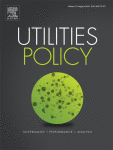Do restrictive regulatory policies matter for telecom performance? Evidence from MENA countries
Ahmed Ezzat, Riham / Nora AboushadyExternal Publications (2018)
in: Utilities Policy (53), 60-72
DOI: https://doi.org/10.1016/j.jup.2018.05.003
The past decade has witnessed a significant transformation in trade and regulatory policies of the telecom sector across the Middle East North Africa (MENA) region. Many countries committed to opening up their telecom sector for trade and investment under WTO commitments. However, these commitments do not always reflect actual policies. Although some MENA countries started alleviating telecom market restrictions and tended to adopt more open policies, other countries are still reluctant to change and adopt highly restrictive policies limiting foreign ownership and control in the market. This paper assesses the impact of telecom restrictions on landline and mobile sector performance in MENA countries using the World Bank Services Trade Restrictiveness database (STRD). We use three-stage least squares-seemingly unrelated regression (3SLS-SUR) to test for the effect of restrictions and the level of competition in the telecom sector on selected performance indicators. Our findings suggest that restrictive policies in the telecom sector are rather likely to affect landline than mobile communications. Moreover, being a MENA country affects the level of competition in the landline market. MENA countries are very protective to their incumbent operators, irrespective of the stipulated market regulations in place.

